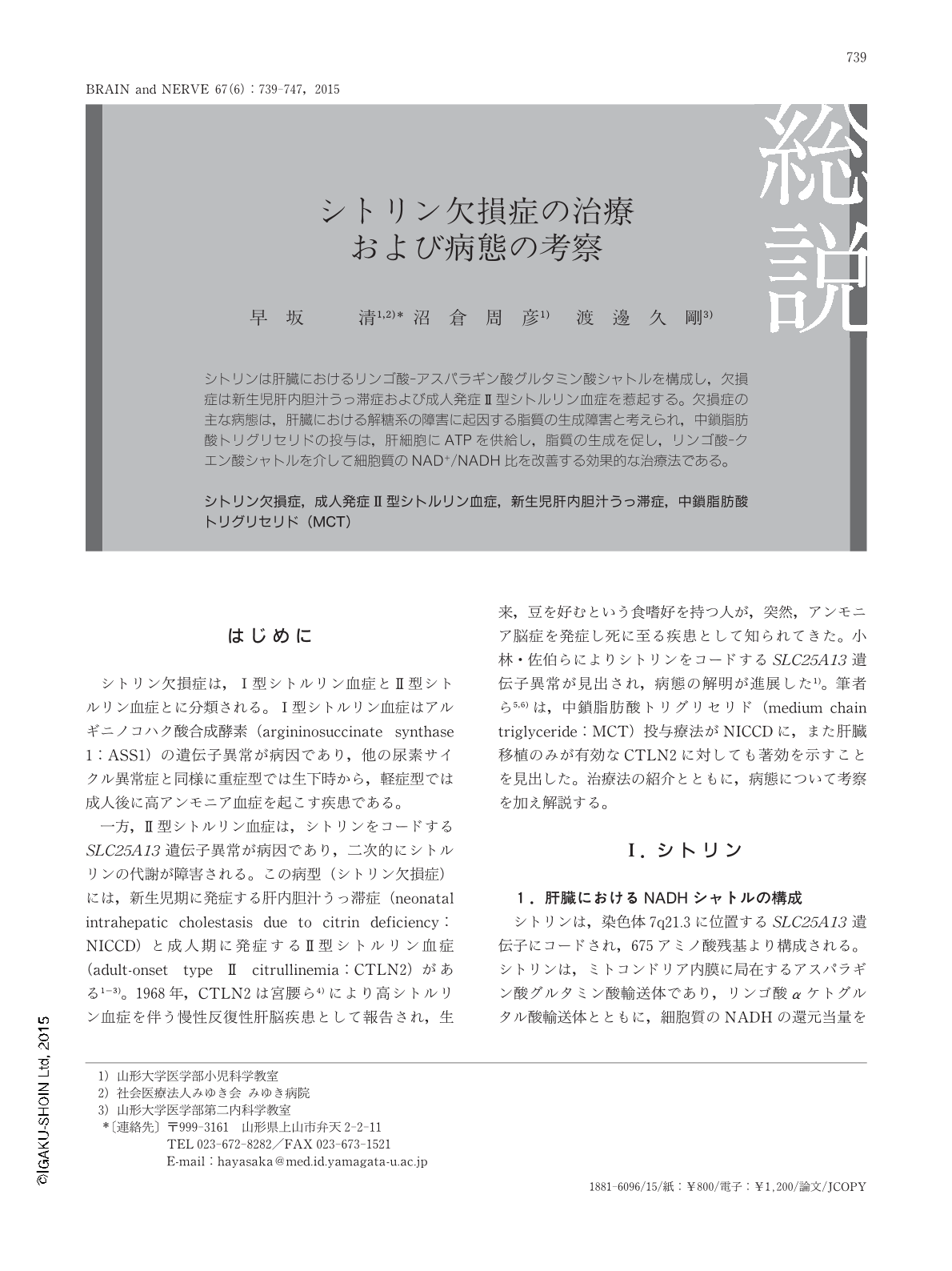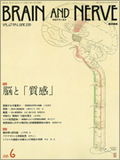Japanese
English
- 有料閲覧
- Abstract 文献概要
- 1ページ目 Look Inside
- 参考文献 Reference
シトリンは肝臓におけるリンゴ酸-アスパラギン酸グルタミン酸シャトルを構成し,欠損症は新生児肝内胆汁うっ滞症および成人発症II型シトルリン血症を惹起する。欠損症の主な病態は,肝臓における解糖系の障害に起因する脂質の生成障害と考えられ,中鎖脂肪酸トリグリセリドの投与は,肝細胞にATPを供給し,脂質の生成を促し,リンゴ酸-クエン酸シャトルを介して細胞質のNAD+/NADH比を改善する効果的な治療法である。
Abstract
Citrin, encoded by SLC25A13, is a component of the malate-aspartate shuttle, which is the main NADH-transporting system in the liver. Citrin deficiency causes neonatal intrahepatic cholestasis (NICCD), which usually resolves within the first year of life. However, a small number of adults with citrin deficiency develop adult-onset type II citrullinemia (CTLN2), which causes hyperammonemic encephalopathy leading to death due to cerebral edema. Liver transplantation is the only definitive therapy for patients with CTLN2. Hepatic glycolysis is coupled with hepatic lipogenesis via the NADH shuttles composed of the malate-aspartate shuttle and malate-citrate shuttle. Citrin deficiency is expected to impair glycolysis and lipogenesis in hepatocytes. We noticed that a lactose (galactose)-restricted and medium-chain triglyceride (MCT)-supplemented formula is notably effective for patients with NICCD. We extended this therapy for CTLN2 and found that an MCT supplementation therapy under a low-carbohydrate formula prevented the relapse of hyperammonemic encephalopathy, normalized the liver dysfunction (including the Fisher ratio), and gradually improved the level of plasma citrulline and fatty liver. An MCT supplement can provide energy to hepatocytes and promote hepatic lipogenesis, leading to improvement of the cytosolic NAD+/NADH ratio via the malate-citrate shuttle. MCT supplementation could be a promising therapy for citrin deficiency.

Copyright © 2015, Igaku-Shoin Ltd. All rights reserved.


